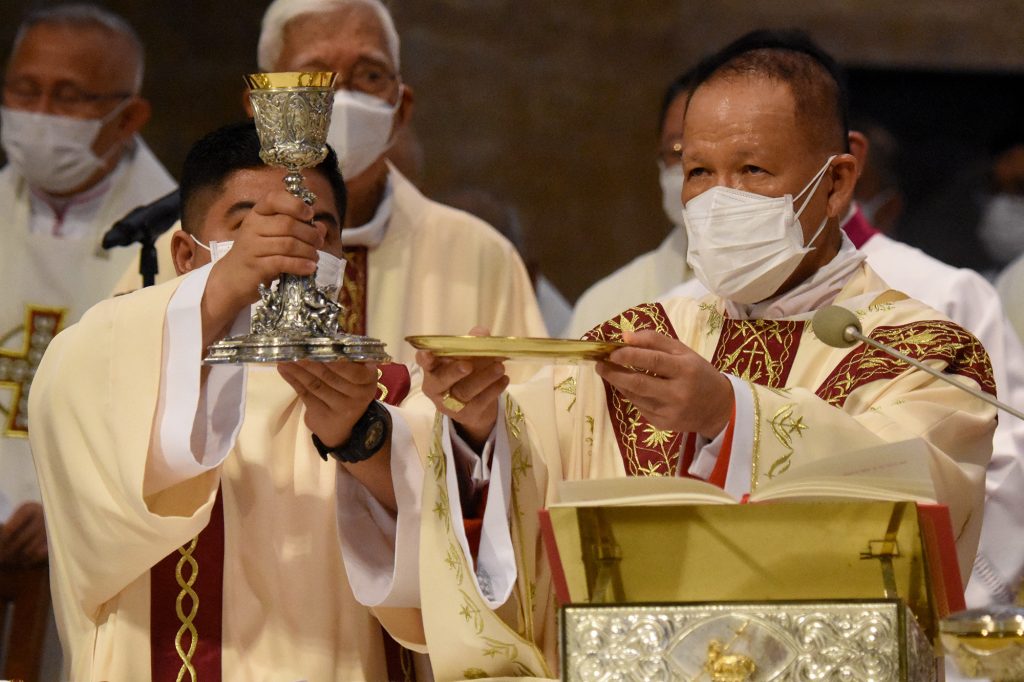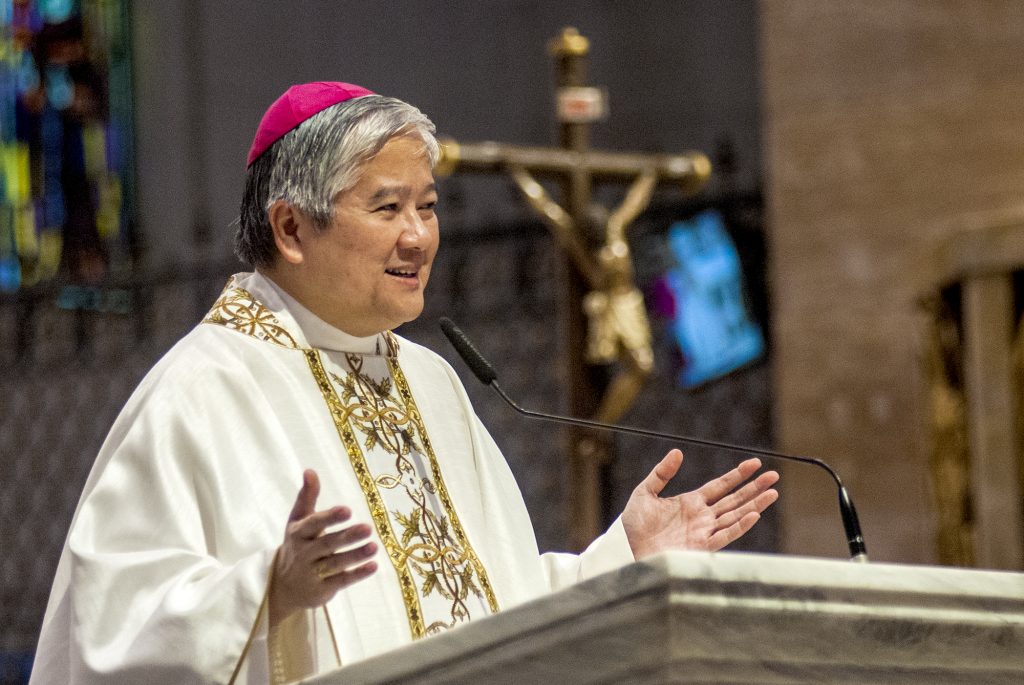The Catholic Church, which is undergoing a process of renewal, “cannot be yellow or red or pink,” said Archbishop Socrates Villegas at the opening of the synodal process on Sunday, October 17.
The prelate of Lingayen-Dagupan in the northern Philippines said the different colors, which are being used by various candidates in next year’s Philippine elections, “separate us.”
The archbishop, a vocal critic of the spate of drug-related killings in the country in recent years, called on the faithful to pray that the synodal process will lead the Church to renewal.
“Let us pray that the two-year consultation in preparation for the Synod on Synodality will truly bring about the new Church,” Archbishop Villegas said in his homily.
He said it means that the Church should always choose Christ over ideology and must emulate Christ’s “all-embracing” and “all-sacrificing” leadership.
“The Church of Christ does not choose any colors [because] Christ should be the center of decision making,” he said.
Pope Francis officially launched the synodal process at the Vatican on October 9 to engage the entire Church in preparing for the Synod of Bishops’ next ordinary assembly in 2023.
The Catholic Bishops’ Conference of the Philippines earlier announced that “small circles” will gather in parishes, schools, and ecclesial communities “to pray together” and discuss issues affecting the Church during the synodal process.

Everyone’s invited
In Manila, Cardinal Jose Advincula called on the people to take part in the synodal process “no matter what your social, political, and economic, intellectual, or spiritual affiliation of our status is.”
In his homily during the Mass for the synod’s diocesan phase in the archdiocese, the cardinal said Pope Francis wanted the widest participation possible in the process of consultation and discernment.
“Your perspective as well as your experience of God can be part of the Synodal journey of the whole archdiocese,” Cardinal Advincula said.
“In God’s family, you have a voice, and your voice counts,” he said, adding that the consultations will involve not only the “church people” or those active in the church but “as many people as possible.”
He said this includes women, children, elderly, those in the business sector, government officials, the members of the LGBTQ+ community, the ordinary workers, among others.
The cardinal said the archdiocese will also reach out to the people in the peripheries and even those who belong to other faith-based communities, and those who left the church.
“No matter how far you feel you are from the church and even from God, you have something to contribute,” said Cardinal Advincula.
“We want to listen to you. We want to journey with you. We want to discern God’s will with you,” he added.

Church that goes to the margins
Archbishop Villegas said the world needs a “Church that leads without being elitist” and “a Church that goes to the margins without being marginalized.”
“This is the dream Church. This is the Church that we want to be. This is the Church we want to become,” he said in his homily at the cathedral in the city of Dagupan.
“We cannot do it by ourselves. We can only do it by the power of God and the power of Christ working in our lives,” he added.
The diocesan phase, which opened on Sunday, begins the synodal process and will include consultations with local clergy and laity.
After the local consultations, the bishops will hold a three-day assembly on the national level on March 7 to 9, 2022, to prepare a national report to the Synod General Secretariat by April 2022.
This will be followed by a continental phase from September 2022 to March 2023, leading on to the “universal phase,” to be held in Rome in October 2023. – with reports from CBCP News






